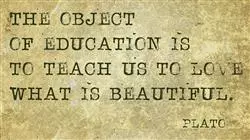University certificate
The world's largest faculty of education”
Introduction to the Program
An analysis of feminisms in a Postgraduate certificate that, in just a few weeks, will allow you to master the contents of this teaching field"

The role of philosophy as a discipline is of vital importance in the management of thoughts and argumentative currents, the purpose of which is to delve deeply into a specific idea. Therefore, in the face of current demands and social movements, it is necessary to know the different branches that are manifesting themselves today, as well as their purposes and discourse.
One of the most recent cases is feminism, a trend that has been around for years but has gained strength in the face of events that have taken place in much of the world. Therefore, it is of vital importance for the educator to know the rationing of this movement, since it exists in most countries and is a topic of interest. In addition, this program will provide fundamental bases to approach debates, combats and drifts, based on real and simulation cases.
Therefore, this University Course created by TECH is an opportunity of knowledge for those who wish to deepen in these specific aspects. Throughout a very complete and specific syllabus, you will acquire the knowledge and routines necessary to understand the role of feminism and its impact, as well as techniques for debate, among other resources of argumentation oriented toward ethical values and social movements.
The nature of beauty and the human perception of it in a University Course created to bring the teacher closer to this branch of philosophy”
This Postgraduate certificate in Feminism(s): Debates, Struggles and Diversions contains the most complete and up-to-date educational program on the market. The most important features include:
- The latest technology in online teaching software
- A highly visual teaching system, supported by graphic and schematic contents that are easy to assimilate and understand
- Practical cases presented by racticing experts
- State-of-the-art interactive video systems
- Teaching supported by telepractice
- Continuous updating and recycling systems
- Autonomous learning: full compatibility with other occupations
- Practical exercises for self-assessment and learning verification
- Support groups and educational synergies: questions to the expert, debate and knowledge forums
- Communication with the teacher and individual reflection work
- Content that is accessible from any fixed or portable device with an Internet connection
- Supplementary documentation databases are permanently available, even after the course
With the most specific learning systems, this Postgraduate certificate will immerse you in hands-on learning, allowing you to acquire the necessary skills for its application in a simple way”
Our teaching staff is made up of philosophy professionals and active specialists. In this way, we ensure that we deliver the educational update we are aiming for. A multidisciplinary team of well-versed and experienced professionals who will efficiently develop the theoretical knowledge, but, above all, will put at the service of the Postgraduate certificate holders the practical knowledge derived from their own experience: one of the differential qualities of this training.
The effectiveness of our methodological design enhances mastery of the subject matter. Developed by a multidisciplinary team of e-learning experts, it integrates the latest advances in educational technology. In this way, you will be able to study with a range of , comfortable and versatile multimedia tools that will give you the operability you need in your education.
The design of this program is based on Problem-Based Learning: an approach that conceives learning as a highly practical process. To achieve this remotely, telepractice with the help of an innovative interactive video system, and learning from an expert you will be able to acquire the knowledge as if you were facing the scenario you are learning at that moment. A concept that will allow you to integrate and fix learning in a more realistic and permanent way.
A high-quality Postgraduate certificate that will allow you to learn with the best educational systems, enjoying the most developed and interactive online resources"

The world's largest online university, with the most advanced resources in a high-level educational experience"
Why study at TECH?
TECH is the world’s largest online university. With an impressive catalog of more than 14,000 university programs available in 11 languages, it is positioned as a leader in employability, with a 99% job placement rate. In addition, it relies on an enormous faculty of more than 6,000 professors of the highest international renown.

Study at the world's largest online university and guarantee your professional success. The future starts at TECH”
The world’s best online university according to FORBES
The prestigious Forbes magazine, specialized in business and finance, has highlighted TECH as “the world's best online university” This is what they have recently stated in an article in their digital edition in which they echo the success story of this institution, “thanks to the academic offer it provides, the selection of its teaching staff, and an innovative learning method aimed at educating the professionals of the future”
A revolutionary study method, a cutting-edge faculty and a practical focus: the key to TECH's success.
The most complete study plans on the university scene
TECH offers the most complete study plans on the university scene, with syllabuses that cover fundamental concepts and, at the same time, the main scientific advances in their specific scientific areas. In addition, these programs are continuously being updated to guarantee students the academic vanguard and the most in-demand professional skills. In this way, the university's qualifications provide its graduates with a significant advantage to propel their careers to success.
TECH offers the most comprehensive and intensive study plans on the current university scene.
A world-class teaching staff
TECH's teaching staff is made up of more than 6,000 professors with the highest international recognition. Professors, researchers and top executives of multinational companies, including Isaiah Covington, performance coach of the Boston Celtics; Magda Romanska, principal investigator at Harvard MetaLAB; Ignacio Wistumba, chairman of the department of translational molecular pathology at MD Anderson Cancer Center; and D.W. Pine, creative director of TIME magazine, among others.
Internationally renowned experts, specialized in different branches of Health, Technology, Communication and Business, form part of the TECH faculty.
A unique learning method
TECH is the first university to use Relearning in all its programs. It is the best online learning methodology, accredited with international teaching quality certifications, provided by prestigious educational agencies. In addition, this disruptive educational model is complemented with the “Case Method”, thereby setting up a unique online teaching strategy. Innovative teaching resources are also implemented, including detailed videos, infographics and interactive summaries.
TECH combines Relearning and the Case Method in all its university programs to guarantee excellent theoretical and practical learning, studying whenever and wherever you want.
The world's largest online university
TECH is the world’s largest online university. We are the largest educational institution, with the best and widest online educational catalog, one hundred percent online and covering the vast majority of areas of knowledge. We offer a large selection of our own degrees and accredited online undergraduate and postgraduate degrees. In total, more than 14,000 university degrees, in eleven different languages, make us the largest educational largest in the world.
TECH has the world's most extensive catalog of academic and official programs, available in more than 11 languages.
Google Premier Partner
The American technology giant has awarded TECH the Google Google Premier Partner badge. This award, which is only available to 3% of the world's companies, highlights the efficient, flexible and tailored experience that this university provides to students. The recognition as a Google Premier Partner not only accredits the maximum rigor, performance and investment in TECH's digital infrastructures, but also places this university as one of the world's leading technology companies.
Google has positioned TECH in the top 3% of the world's most important technology companies by awarding it its Google Premier Partner badge.
The official online university of the NBA
TECH is the official online university of the NBA. Thanks to our agreement with the biggest league in basketball, we offer our students exclusive university programs, as well as a wide variety of educational resources focused on the business of the league and other areas of the sports industry. Each program is made up of a uniquely designed syllabus and features exceptional guest hosts: professionals with a distinguished sports background who will offer their expertise on the most relevant topics.
TECH has been selected by the NBA, the world's top basketball league, as its official online university.
The top-rated university by its students
Students have positioned TECH as the world's top-rated university on the main review websites, with a highest rating of 4.9 out of 5, obtained from more than 1,000 reviews. These results consolidate TECH as the benchmark university institution at an international level, reflecting the excellence and positive impact of its educational model.” reflecting the excellence and positive impact of its educational model.”
TECH is the world’s top-rated university by its students.
Leaders in employability
TECH has managed to become the leading university in employability. 99% of its students obtain jobs in the academic field they have studied, within one year of completing any of the university's programs. A similar number achieve immediate career enhancement. All this thanks to a study methodology that bases its effectiveness on the acquisition of practical skills, which are absolutely necessary for professional development.
99% of TECH graduates find a job within a year of completing their studies.
Postgraduate Certificate in Feminisms: Debates, Struggles and Diversions
The world of feminism is extremely extensive, if you want to learn about the theories and practices that have shaped it over the years, at TECH you will find the ideal program. The Postgraduate Certificate in Feminisms: Debates, Struggles and Diversions, addresses topics such as the history of feminism, feminist theories, gender violence, sexual diversity and gender equality policies. Through a critical and participatory approach, you will understand the power dynamics and gender inequalities present in our society. This will allow you to acquire the necessary tools to combat them and promote a more just and egalitarian society.







